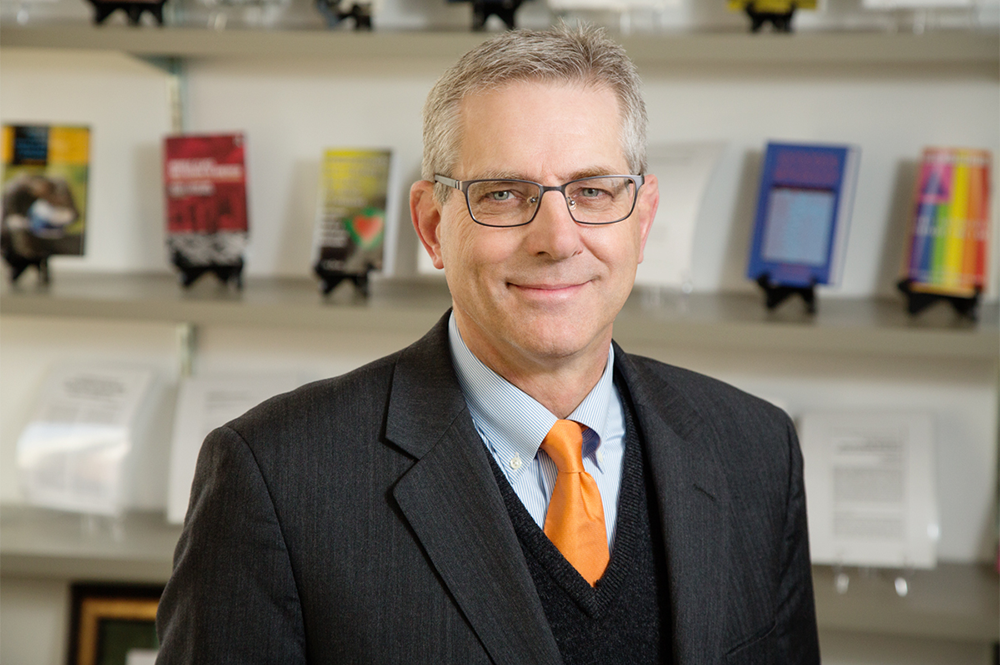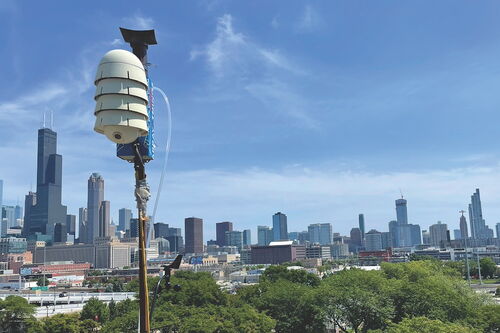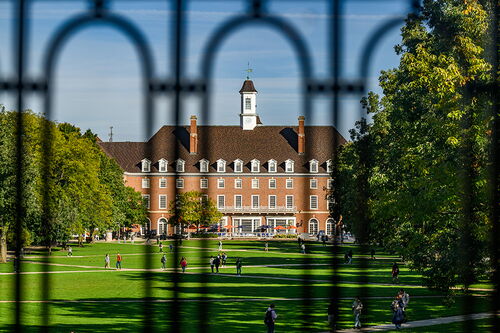A deeper look at a meltdown

A sociology professor’s exploration of the economic health of the American middle class – and the potential pitfalls it faces – has hit a nerve, as a book he published on the topic continues to generate interest three years after it was released.
Kevin Leicht, head of the Department of Sociology, credits the interest in “Middle Class Meltdown in America: Causes, Consequences, and Remedies” to growing anxiety among many Americans about their future. Recently, he was interviewed by KUT 90.5, a National Public Radio station in Austin, Texas, in a story about America’s middle class that was broadcast on multiple Texas stations.
The book explores growing middle class inequality with statistical data and addresses how America can make its middle class more secure.
“Recent economic problems like the Great Recession of 2008-2009 have masked a much longer-term crisis in the economic health of the U.S. middle class,” Leicht told the College of LAS recently. “Many people remain anxious that we’re creating a two-tiered society with relatively limited economic prospects for most people. That keeps the topic of the book salient in the minds of many.”
Leicht co-authored the book (published in 2014) with Scott Fitzgerald at the University of North Carolina when Leicht was head of the Department of Sociology at the University of Iowa. At the time, the economic state of America’s middle class was not Leicht’s main area of interest, but it caught the attention of many who related to the topic.
“Culturally, I think the United States has defined itself historically as a middle class society,” Leicht told KUT 90.5 earlier this fall. “It’s a cultural category that implies respectability, upward mobility, and making a contribution.”
However, some older Americans find that living a middle class lifestyle is more difficult and expensive than when they were children in the 1960s and 1970s, Leicht said, while others find the lifestyle more attainable than ever.
“For the past 30 years or so, people were borrowing a lot of money to appear to be members of the middle class,” Leicht told the station. “You might have a halfway decent income, but your overall financial picture was not all that rosy.”
Due to the book, Leicht quickly became one of the most popular outreach speakers on campus at Iowa, giving media interviews and dozens of presentations to community groups.
Interest in his research followed Leicht when he came to Illinois in 2015. In 2016, the state of the American economy came to the forefront during the presidential election. Moreover, when the U.S. Census Bureau released the evidence that median incomes had finally started to rise after the 2008-09 recession, the notion of what it meant to be middle class became a central point in the 2016 election.
“Clearly, the populist politics of Bernie Sanders and Donald Trump were geared toward the frustrations of mostly middle-class people who feel that the economic system is rigged against them. One can debate how effective these appeals were, but now economic fairness is much more salient than it was when we first proposed the prior version of this book in 2004,” Leicht told the College of LAS.
He feels energized to continue studying the complex topic, as he is working on a follow-up analysis tentatively titled, “Is the American Dream Dead?” for Stanford University Press.
“What started as a relatively minor sideline of more general things I was interested in became a bit of a sensation through the combination of research and outreach that the books produced,” Leicht explained.
Students in Leicht’s classes have been engaging with the book in a thought-provoking way, he added.
“I think the book has made my teaching in LAS and in sociology much more dynamic. This is a topic that engages students from a wide variety of backgrounds, in part because of the place the American middle class has in global cultural lore,” Leicht said. “When people see the actual economic statistics and figures, they’re often very surprised and–in some cases–upset. But it does get them thinking about their neighbors and their future.”








